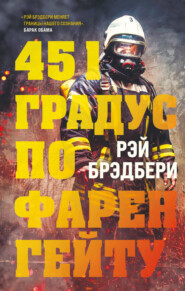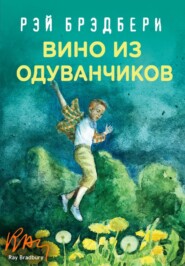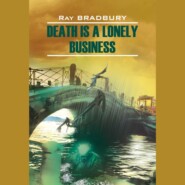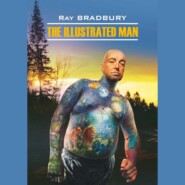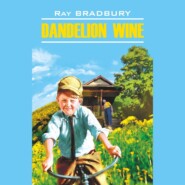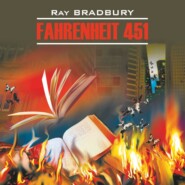По всем вопросам обращайтесь на: info@litportal.ru
(©) 2003-2024.
✖
I Sing the Body Electric
Автор
Год написания книги
2018
Настройки чтения
Размер шрифта
Высота строк
Поля
Abraham Lincoln sat in his carved highback chair, his head bent forward at an unfamiliar angle. Eyes flexed wide, he gazed upon nothing. His large hands rested gently on the chair arms, as if he might momentarily shift weight, rise, and declare this sad emergency at an end.
Moving as under a tide of cold water, Bayes mounted the steps.
“Lights, dammit! Give us more lights!”
Somewhere, an unseen technician remembered what switches were for. A kind of dawn grew in the dim place.
Bayes, on the platform, circled the occupant of the chair, and stopped.
Yes. There it was. A neat bullet hole at the base of the skull, behind the left ear.
“Sic semper tyrannis,” a voice murmured somewhere.
Bayes jerked his head up.
The assassin, seated now in the last row of the theatre, face down but sensing Bayes’ preoccupation with Lincoln, spoke to the floor, to himself:
“Sic—”
He stopped. For there was an outraged stir above him. One security guard’s fist flew up, as if the man had nothing to do with it. The fist, urgent to itself, was on its way down to silence the killer when—
“Stop!” said Bayes.
The fist paused halfway, then withdrew to be nursed by the guard with mixtures of anger and frustration.
None, thought Bayes, I believe none of it. Not that man, not the guards and not … he turned to again see the bullet hole in the skull of the slain leader.
From the hole a slow trickle of machinery oil dripped.
From Mr. Lincoln’s mouth, a similar slow exudation of liquid moved down over the chin and whiskers to rain drop by drop upon his tie and shirt.
Bayes knelt and put his ear to the figure’s chest.
Faintly within there was the whine and hum of wheels, cogs, and circuitries still intact but malfunctioning.
For some reason this sound reared him to his feet in alarm.
“Phipps…!?”
The guards blinked with incomprehension.
Bayes snapped his fingers. “Is Phipps coming in tonight? Oh God, he mustn’t see this! Head him off! Tell him there’s an emergency, yes, emergency at the machine plant in Glendale! Move!”
One of the guards hurried out the door.
And watching him run, Bayes thought, please, God, keep Phipps home, keep him off…
Strange, at such a time, not your own life but the lives of others flashed by.
Remember … that day five years past when Phipps first slung his blueprints, his paintings, his watercolors out on a table and announced his Grand Plan? And how they had all stared at the plans and then up at him and gasped:
Lincoln?
Yes! Phipps had laughed like a father just come from a church where some sweet high vision in some strange Annunciation has promised him a most peculiar son.
Lincoln. That was the idea. Lincoln born again.
And Phipps? He would both engender and nurture this fabulous ever-ready giant robot child.
Wouldn’t it be fine … if they could stand in the meadow fields of Gettysburg, listen, learn, see, hone the edge of their razor souls, and live?
Bayes circled the slumped figure in the chair and, circling, numbered the days and remembered years.
Phipps, holding up a cocktail glass one night, like a lens that simultaneously proportions out the light of the past and the illumination of the future:
“I have always wanted to do a film on Gettysburg and the vast crowd there and far away out at the edge of that sun-drowsed impatient lost thick crowd, a farmer and his son trying so hard to hear, not hearing, trying to catch the wind-blown words from the tall speaker there on the distant stand, that gaunt man in the stovepipe hat who now takes off his hat, looks in it as to his soul rummaged there on scribbled letterbacks and begins to speak.
“And this farmer, in order to get his son up out of the crush, why, he hefts the boy up to sit upon his shoulders. There the boy, nine years old, a frail encumbrance, becomes ears to the man, for the man indeed cannot hear nor see but only guess what the President is speaking far across a sea of people there at Gettysburg and the President’s voice is high and drifts now clear, now gone, seized and dispersed by contesting breeze and wind. And there have been too many speakers before him and the crowd all crumpled wool and sweat, all mindless stockyard squirm and jostled elbow, and the farmer talks up to his son on his shoulders in a yearning whisper: What? What’s he say? And the boy, tilting his head, leaning his peach-fuzz ear to the wind, replies:
“‘Fourscore and seven years …’”
“Yes?”
“‘… ago, our fathers brought forth …’”
“Yes, yes!?”
“‘… on this continent …’”
“Eh?”
“Continent! ‘A new nation, conceived in liberty, and dedicated to the proposition that all men are…’
“And so it goes, the wind leaning against the frail words, the far man uttering, the farmer never tiring of his sweet burden of son and the son obedient cupping and catching and telling it all down in a fierce good whisper and the father hearing the broken bits and some parts missing and some whole but all fine somehow to the end…
“‘… of the people, by the people, for the people, shall not perish from the earth.’
“The boy stops whispering.
“It is done.
“And the crowd disperses to the four directions. And Gettysburg is history.
“And for a long time the father cannot bring himself to ease his translator of the wind down to set him on the earth, but the boy, changed, comes down at last…”
Bayes sat looking at Phipps.
Phipps slugged down his drink, suddenly chagrined at his own expansiveness, then snorted:






